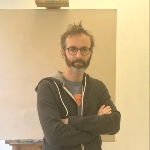Background
Philippe de Broca was born on 15 March 1933 in Paris. His father was a cinema set designer.

La Cité du Cinéma, 20 Rue Ampère, 93200 Saint-Denis, France
Philippe de Broca studied at the Paris Photography and Cinematography School, which today is called the National School Supérieure Louis-Lumière. He graduated in 1953.
Philippe de Broca with a camera on the set of the movie Incorrigible.
Philippe De Broca on set.
Philippe De Broca's earlier portrait.









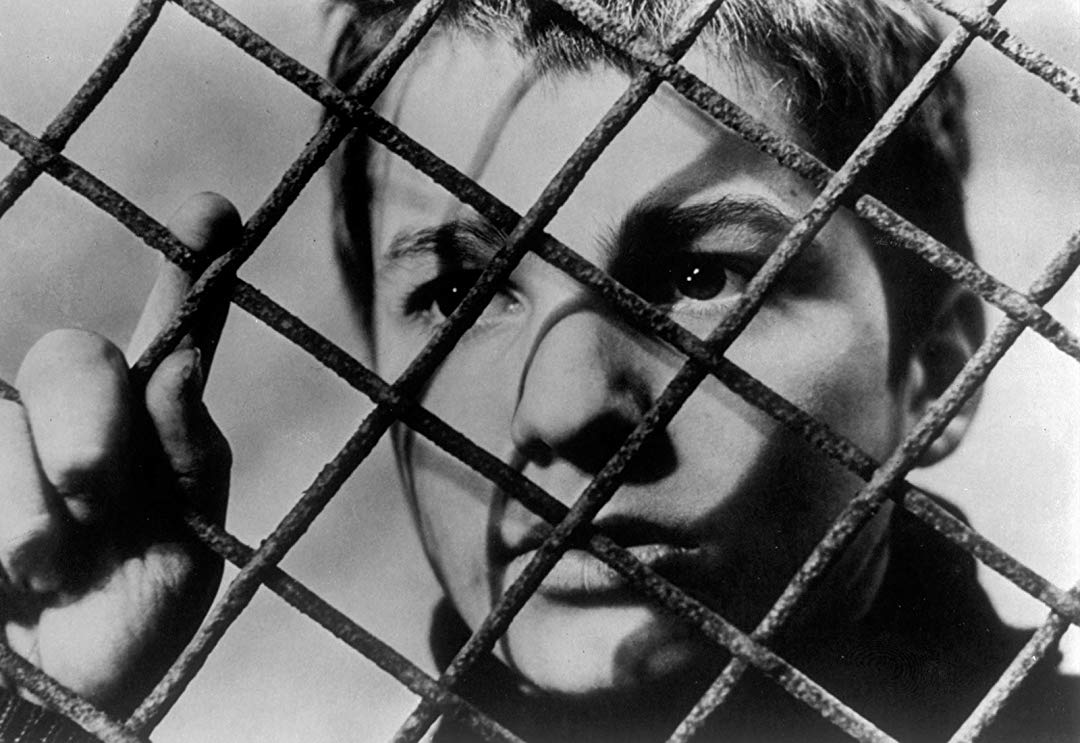
(François Truffaut's first feature, The 400 Blows, is also...)
François Truffaut's first feature, The 400 Blows, is also his most personal. Told through the eyes of Truffaut's life-long cinematic counterpart, Antoine Doinel (Jean-Pierre Léaud), The 400 Blows sensitively re-creates the trials of Truffaut's own difficult childhood, unsentimentally portraying aloof parents, oppressive teachers, petty crime, and a friendship that would last a lifetime.
https://www.amazon.com/400-Blows-English-Subtitled/dp/B002QWDG4W/?tag=2022091-20
1959

(In Les Cousins, Claude Chabrol crafts a sly moral fable a...)
In Les Cousins, Claude Chabrol crafts a sly moral fable about a provincial boy who comes to live with his sophisticated bohemian cousin in Paris. Through these seeming opposites, Chabrol conjures a piercing, darkly comic character study that questions notions of good and evil, love and jealousy, and success in the modern world. A mirror image of Le beau Serge, Chabrol’s debut, Les cousins recasts that film’s stars, Jean-Claude Brialy and Gérard Blain, in startlingly reversed roles. This dagger-sharp drama won the Golden Bear at the Berlin Film Festival and was an important precursor to the French New Wave.
https://www.amazon.com/cousins-Criteron-Collection-Blu-ray/dp/B0056ANHQI/?tag=2022091-20
1959

(Claire, married to Georges, has an affair with bachelor A...)
Claire, married to Georges, has an affair with bachelor Antoine, who is being kept by her good friend Madeleine, a wealthy couturière. But the meetings at Antoine's apartment, five afternoons a week, come to a halt when their partners learn the truth.
https://www.amazon.com/Five-Day-Lover-English-Subtitled/dp/B01JMD7KK8/?tag=2022091-20
1961

(That Man from Rio is a turbulent, fast-paced comedy adven...)
That Man from Rio is a turbulent, fast-paced comedy adventure, one of the best of its time, about unhappy billionaire Belmondo, whose suicide attempts keep failing. When he hires some killers to do him in, he falls in love with beautiful Andress and wants to reverse the deal. Belmondo is ideally suited to this role, exotic locations and lots of stunts make this a joy to watch. A worthy companion piece to the Bond movies of that time.
https://www.amazon.com/That-Man-Rio-His-Ears/dp/B00RWKN7O2/?tag=2022091-20
1964

(In this outrageous madcap comedy, a Scottish soldier is s...)
In this outrageous madcap comedy, a Scottish soldier is sent into an abandoned French village to blow it up until he finds there are still people left from the local insane asylum.
https://www.amazon.com/King-Hearts-Alan-Bates/dp/B07DGN1C9D/?tag=2022091-20
1966

(A Marquise who lures motorists to her hotel by sabotaging...)
A Marquise who lures motorists to her hotel by sabotaging their cars gets more than she bargains for when one guest turns out to be a bank robber on the run.
https://www.amazon.com/Devil-Tail-Yves-Montand/dp/B01DMW1RWW/?tag=2022091-20
1969

(Francois Merlin is an espionage-book writer. He likes to ...)
Francois Merlin is an espionage-book writer. He likes to mix every-day character he can meet in his book. In his book, he is Bob Saint Clar, his neighbor Christine appears as Tatiana and his editor Georges Charon as Colonel Karpoff.
https://www.amazon.com/Magnifique-Jean-Paul-Belmondo/dp/B00004XOC9/?tag=2022091-20
1973

(Victor Vautier is incorrigible: he's in constant motion, ...)
Victor Vautier is incorrigible: he's in constant motion, working several cons at once, using different names and changing disguises. He's charming and outrageous, incapable of uttering a sentence that isn't embellished or an outright lie. His life goal is to make enough money to build a sea wall to protect Mont-Saint-Michel. Charlotte, a parole officer, shows up: she's young and seems taken in by Victor. He discovers she lives above the Senlus Museum, where her parents are the curators. With two pals he decides to steal a priceless El Greco triptych and then ransom it back to the cultural ministry.
https://www.amazon.com/Incorrigible-LIncorrigible-Region-Jean-Paul-Belmondo/dp/B000N16726/?tag=2022091-20
1975
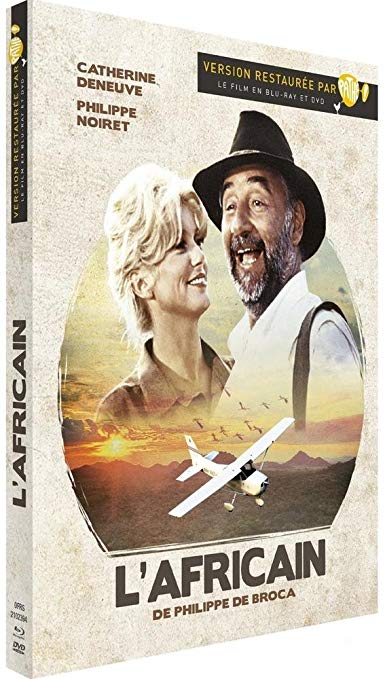
(Charlotte wants to open a new holiday resort in Central A...)
Charlotte wants to open a new holiday resort in Central Africa. Once there, she meets up with her ex-husband, who's determined to foil her plans. The film takes us on a high-speed chase across the pygmy territory, amongst the elephants and poachers.
https://www.amazon.com/African-LAfricain-Blu-Ray-Combo-Reg/dp/B00L1NUHQM/?tag=2022091-20
1983

(It takes the cavalier Lagardère sixteen years to avenge h...)
It takes the cavalier Lagardère sixteen years to avenge his friend the Duke of Nevers, who was assassinated by the infamous Gonzag, who would later become the king of Paris finance in the sumptuous days of the Regency. Sixteen years to assert the triumph of morality, save honor, and find love.
https://www.amazon.com/Guard-English-Subtitled-Daniel-Auteuil/dp/B01JMDKWMQ/?tag=2022091-20
1997
Philippe de Broca was born on 15 March 1933 in Paris. His father was a cinema set designer.
Philippe de Broca studied at the Paris Photography and Cinematography School, which today is called the National School Supérieure Louis-Lumière. He graduated in 1953.
After graduating from the school, unable to avoid his military service, Philippe de Broca finds himself in French-occupied Germany, in Baden-Baden, where the Service Cinématographique des Armées (Army Film Service) is based. With the war in Algeria continuing, the Army Film Service moves to Algiers, where private first-class de Broca puts his talent to use, filming operations in the mountains and shooting footage of captured weapons to be shown on the news. Here he also directs educational films. Finally released after thirty months of service, Philippe returns to Paris, moves away from shooting pictures, and instead finds internships as a director’s assistant, with Henri Decoin among others.
Then Philippe de Broca is asked to work on an unknown young director’s first movie, in the rural Creuse area of central France, in the depths of winter. He hesitates before accepting, and this is where he meets Claude Chabrol, who is working on Le Beau Serge. Next, come several movies - Les Cousins and Web of Passion, then François Truffaut’s The 400 Blows, and Pierre Schoendorffer’s Ramuntcho. This is where his career as an assistant comes to the end since the generous Claude Chabrol offers him the chance to produce his first film. It was the height of the French New Wave cinema movement, and amongst all the young pretenders, Philippe was the only one with "professional training" - the others emerged from the press, from film criticism, or from nowhere at all. This apparent advantage goes on to become a problem, leading to the cool reception sometimes offered by his fellow directors.
The Love Game film, based on an idea by Geneviève Cluny, who also plays the heroine, marked the beginnings of a foursome who will work together on the following two films, The Joker and Five Day Lover - Jean-Pierre Cassel acting, Daniel Boulanger writing the screenplay, Jean Penzer filming, and Georges Delerue providing the music. They will go on to work together often throughout Philippe de Broca’s career - he remained faithful to his actors and crew-members. These first three films meet with a largely favorable reception, with the freshness, the original tone, and the discovery of new acting talent being especially praised. But it is with Cartouche, featuring the actors Jean-Paul Belmondo and Claudia Cardinale, that his talent for sumptuous historical films and open landscapes is really allowed to shine - a talent hidden in his early Parisian comedies.
After the success of Cartouche, Philippe de Broca goes on to alternate between romantic comedies with a touch of cheekiness about them, and spectacular epic movies, which allow him to indulge his interest in history. With That Man from Rio, a surprise worldwide hit, the third type of film emerges - the adventure-comedy where a hero is plunged against his will into sticky situations from which he manages to emerge unscathed - a form which will prove to influence future directors, including Steven Spielberg with the Indiana Jones movies. From Five Day Lover onwards, Philippe has the support of two producers, Georges Dancigers and Alexandre Mnouchkine, who believe in his talent and will continue to work with him for many years. From this point on, he can give full flow to his imagination in his movies.
This long career has one rather exceptional quality - directors whose life’s work remains so coherent are rare, a sort of disguised autobiography, presenting, over 44 years, a series of scenes which reflect, throughout each phase of his life, his changing inclinations, tastes, and interests. There are the films de Broca made as a young man, those of his middle age, and those he made as he approached his later years. Embodying these successive stages, Jean-Pierre Cassel, Jean-Paul Belmondo, Jean Rochefort, and then Philippe Noiret could be said to represent the masculine characters who go from indifference to a kind of wisdom, reflecting the evolution of the indefatigable director himself. Different screenwriters worked with de Broca on these stories, but there is always a certain style, a distinctive ‘hand’ running through all of them, unique to the director - a mix of provocative humor, schoolboy cheekiness, and shyness when faced with a heroine who proves difficult to woo and, therefore, makes the hero surpass himself. Sadly, Philippe de Broca expressed himself in popular comedies, in an era when drama, corruption, and violence came to be favored over lightness and humor, with the latter being viewed as a minor genre. This is despite the audience’s clear taste for a well-made comedy - it’s much harder to make people laugh than it is to make them cry.
Philippe de Broca's continued to work on films until his death of cancer on November 26, 2004.
De Broca was a popular and critically acclaimed movie director well known for his farces and spoofs that nevertheless occasionally hid more serious themes. He directed over 30 full-length feature films, including the highly successful adventure movies That Man from Rio (L'Homme de Rio) and Le Magnifique, romantic comedy Le Cavaleur, and epics On Guard (Le Bossu) and Chouans!.
(It takes the cavalier Lagardère sixteen years to avenge h...)
1997(In this outrageous madcap comedy, a Scottish soldier is s...)
1966(That Man from Rio is a turbulent, fast-paced comedy adven...)
1964(A Marquise who lures motorists to her hotel by sabotaging...)
1969(In Les Cousins, Claude Chabrol crafts a sly moral fable a...)
1959(Claire, married to Georges, has an affair with bachelor A...)
1961(Victor Vautier is incorrigible: he's in constant motion, ...)
1975(A romantic comedy classic directed by Philippe de Broca, ...)
1962(Six of Europe's finest directors trace the evolution of p...)
1967(François Truffaut's first feature, The 400 Blows, is also...)
1959(Charlotte wants to open a new holiday resort in Central A...)
1983(Francois Merlin is an espionage-book writer. He likes to ...)
1973Philippe de Broca is often described as a humorous man. He held on to a provocative sense of humor throughout his life, sometimes making people feel uncomfortable but at the end of the day - gaily.
Philippe de Broca was married three times - to Michelle de Broca from 1958 to 1961, to Margot Kidder from 1983 to 1984, and Valérie Rojan from 1987 to 2004. He had three children.
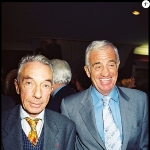
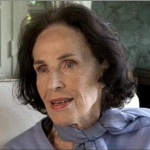
Michelle de Broca was married to Philippe de Broca from 1958 to 1961.
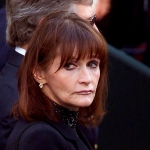
Margot Kidder was married to Philippe de Broca from 1983 to 1984.

Valérie Rojan was married to Philippe de Broca from 1987 to 2004.
